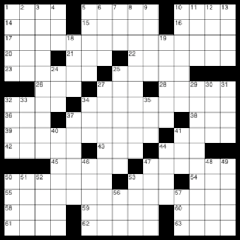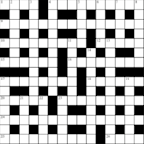Search results
Modern Greek and Albanian are the only two modern Indo-European languages that retain a synthetic passive (the North Germanic passive is a recent innovation based on a grammaticalized reflexive pronoun). Differences from Classical Greek. Modern Greek has changed from Classical Greek in morphology and syntax, losing some features and gaining others.
- 13.4 million (2012)
May 19, 2023 · Modern-day crossword puzzles are said to have been invented in 1913 by Arthur Wynne, a British-born journalist who worked in the United States. He created the first crossword puzzle for the “New York World” newspaper, and it was initially called a “word-cross puzzle” due to a typographical error.
People also ask
Where did modern Greek come from?
When did modern Greek start and end?
When did Greek and Cypriot language change?
What was Greek language like in the 19th century?
May 23, 2023 · Modern Greek Origins. Modern Greek was born through Koine Greek—traced back to Dorian Greek settlers in 700 BC. The end of the Medieval Greek period and the emergence of Modern Greek is often connected to the fall of the Byzantine Empire in 1453, despite the fact that Modern Greek linguistics have appeared far before, around the fourth ...
History and development. Modern Greek derives from the Koine via the local varieties that presumably arose during the Byzantine period and is the mother tongue of the inhabitants of Greece and of the Greek population of the island of Cyprus.
WHO are the modern Greeks? What is their origin? How did their national character come to be formed? Greeks today speak a language which, though not the ancient Attic tongue, is nevertheless,...
Dec 15, 2018 · The vast majority of Modern Greek vocabulary is directly inherited from ancient Greek, like άνθρωπος (anthropos - man) or θάλασσα (thalassa - sea). Words of foreign origin have entered the language mainly from Latin, Italian and Ottoman Turkish.
Mar 5, 2024 · Middle Greek, also known as Medieval Greek, is the phase of the Greek language that bridges the Classical with the Modern Greek variety spoken today. Middle Greek flourished and developed during the Eastern Roman Empire from the fourth to the fifteenth century AD.









